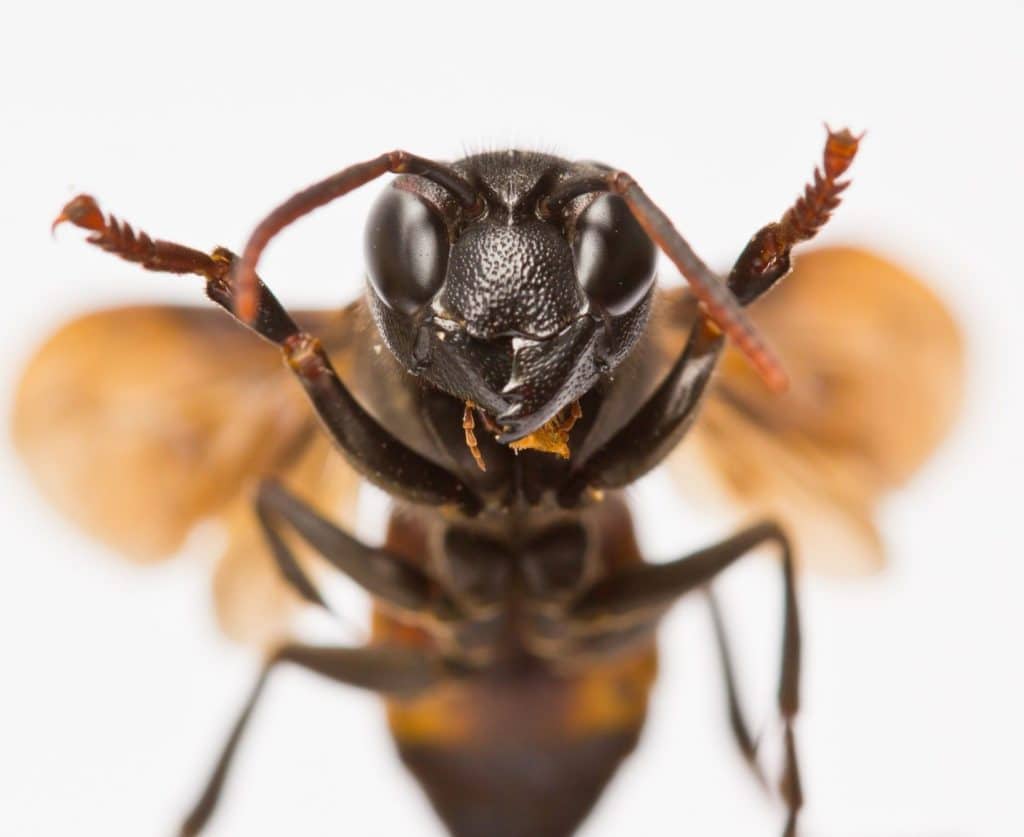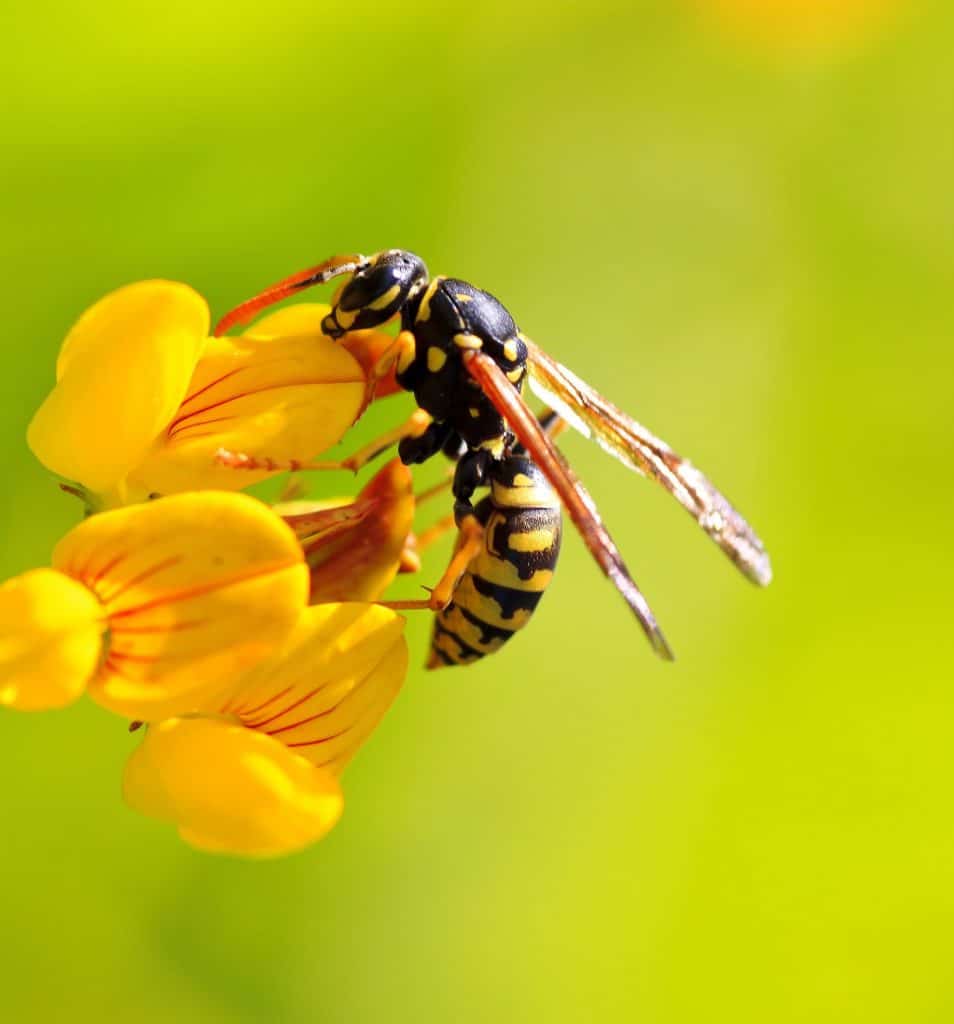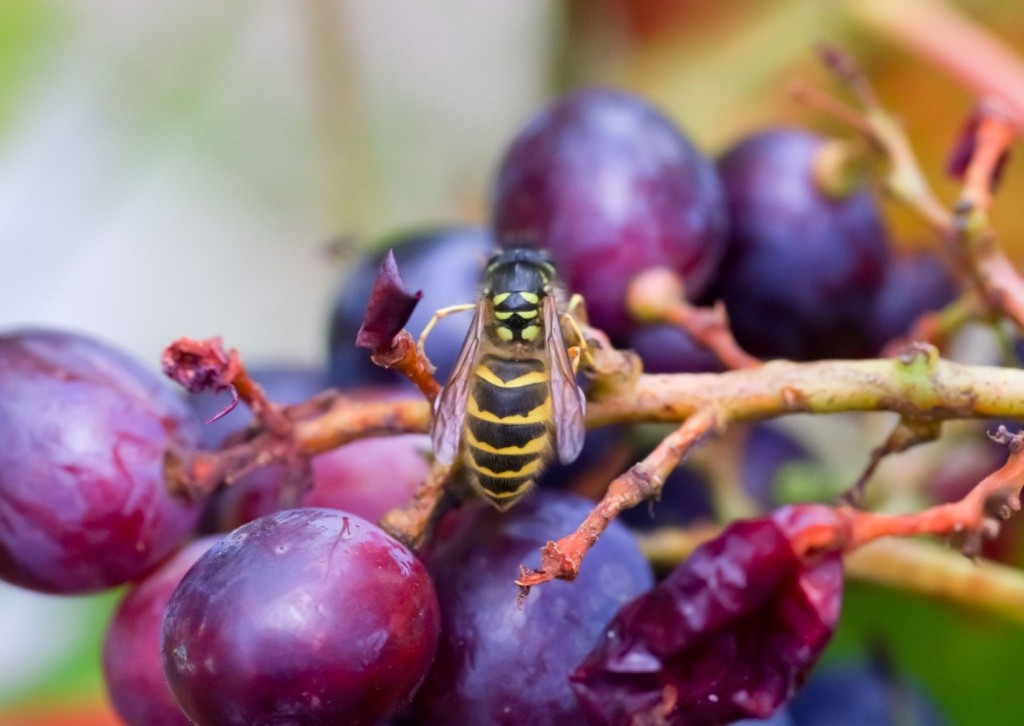Not-So-Obvious Reasons to Love Wasps (Or At Least not Hate Them as Much)

The hate for wasps is universal. No matter if they’ve been stung once, multiple times, or never, people generally dislike the tiny buzzing insects, often including them into the category of “completely useless” insects from an ecological point of view. Stinging people with no reason, buzzing persistently, making nests out of paper vomit, invading picnics, and dive-bombing barbecues, the yellow jackets seem to cause nothing but pain and damage whenever they’re present. Aside from delivering one of the most painful stings of all stinging insects (rated by entomologist Justin Schmidt 3 on a scale from 0 to 4), wasps’ venom also contains a pheromone that alarms the rest of the colony and invites them to join the attack. So if one wasp stings you, brace yourself, because hell is about to break loose.
So yes, hating wasps, yellow jackets, and hornets seems like a perfectly reasonable thing, especially for those who felt their wrath themselves. They get a bad rap because they buzz, bite, sting, damage houses, strip the bark off of trees, chew holes in ripe fruit, and pose real danger for people allergic to their stings. However, wasps are not the bad guys we’ve made them to be. They are, in fact, some of the most important insects in the world, benefitting the environment in a number of ways. Below are five reasons why you should reevaluate your attitude about them –if you cannot come to love them, at least try and hate them less.
5 Reasons Why Wasps Are Important to Our Environment

1) Wasps are important pollinators
Although bees own the copyright to “pollination,” many other insects, including wasps, flies, butterflies, moths, beetles, thrips, bats, and birds provide pollination services to some of the world’s most important crops. Wasps feed on the pollen of a number of flowering plants in the garden that cannot self-pollinate, including melon, squash, cucumber, zucchini, and several others.
2) They prey on garden pests
Aside from being important pollinators (more so in recent years when we’ve seen the honey bee population plummeting), wasps are also one of the most effective biological pest control methods. Their role in the native landscape is critical because they are parasitic and feed on a number of garden pests, including flies, leaf beetle larvae, aphids, caterpillars, grasshoppers, etc. They operate at low population densities, which helps prevent pest populations from getting out of control. It is estimated that a developing yellow jacket colony is able to remove more than 2 pounds of insects from a garden of 2,000 square feet.
3) They help improve animal performance
Face flies, horn flies, and stable flies are some of the most troublesome pests among calves, causing great discomfort and presenting significant disease risk. Pre-weaned calves are most exposed to the damaging effects of flies due to the fact that they live in enclosed spaces where they cannot escape their bites. Parasitic wasps are dependent on fly pupae for reproduction (they break a hole in the puparium and lay their egg inside them), cutting their populations by up to 75 percent. As a result of keeping fly populations in check biologically, calf weaning weights are 10 to 20 times higher, milk production significantly higher, and the incidence of fly-transmitted diseases such as pinkeye considerably reduced.

4) They make our wine taste better
Although there isn’t any visible connection between the complex aroma and flavor of your favorite wine and wasps, the two are, in fact, linked. Researchers of microbiology from the University of Florence in Italy discovered that wasps biting into grapes help start the fermentation process while grapes are still on the vines, and the yeast they spread by doing this has a tremendous impact on wine flavors. Other insects also carry the yeast, but stinging insects are the only ones capable of storing it over winter and also passing it along to their young.
5) They may help save the world’s citrus
A certain species of parasitic wasps called Tamarixia radiata is one of the few known cures for a serious citrus disease called citrus greening (also known as the yellow dragon disease). First reported in 1929 in China, the disease is now attacking tens of thousands of acres of citrus trees in North America, affecting the production of lemons, grapefruit, and oranges. The flea-size parasitic wasp is a natural predator of the Asian citrus psyllids, the agents that spread the pathogen from tree to tree, and can help reduce populations of the pest significantly.
Wasps may be portrayed as some of the worst villains of the animal kingdom, but as you can see, they can benefit the environment in a number of ways, playing a crucial role in crop pollination and reducing the damaging impact of numerous pest insects.
About the Author
Daniel Mackie, co-owner of Greenleaf Pest Control, is a Toronto pest control expert well-known as an industry go-to guy, an innovator of safe, effective pest control solutions, and is a regular guest on HGTV. Mackie, along with business partner Sandy Costa, were the first pest control professionals in Canada to use detection dogs and thermal remediation for the successful eradication of bed bugs. In his free time, he is an avid gardener.














You must be logged in to post a comment.